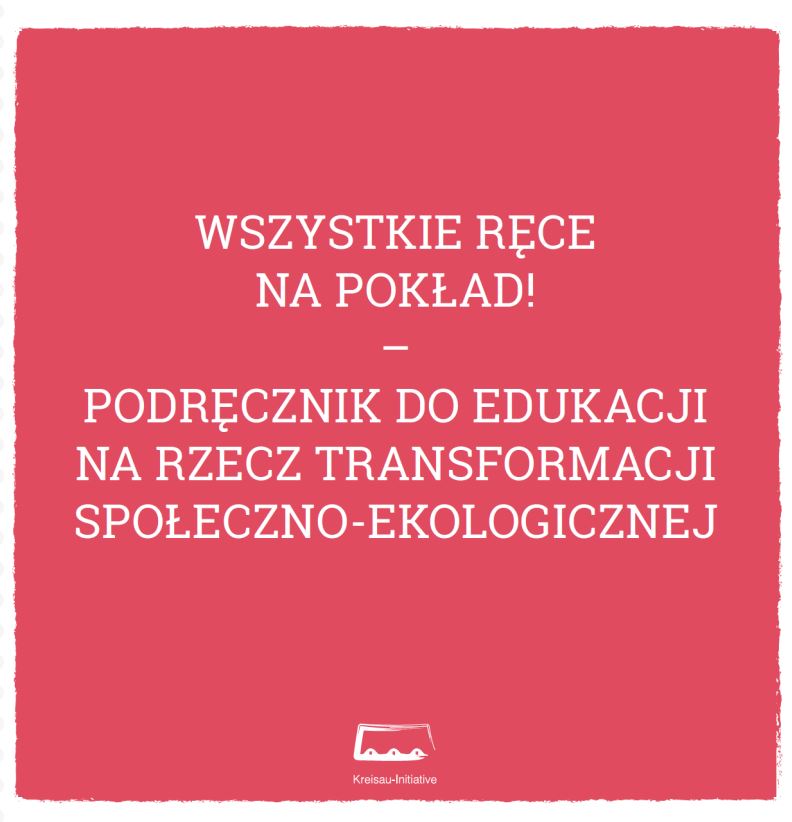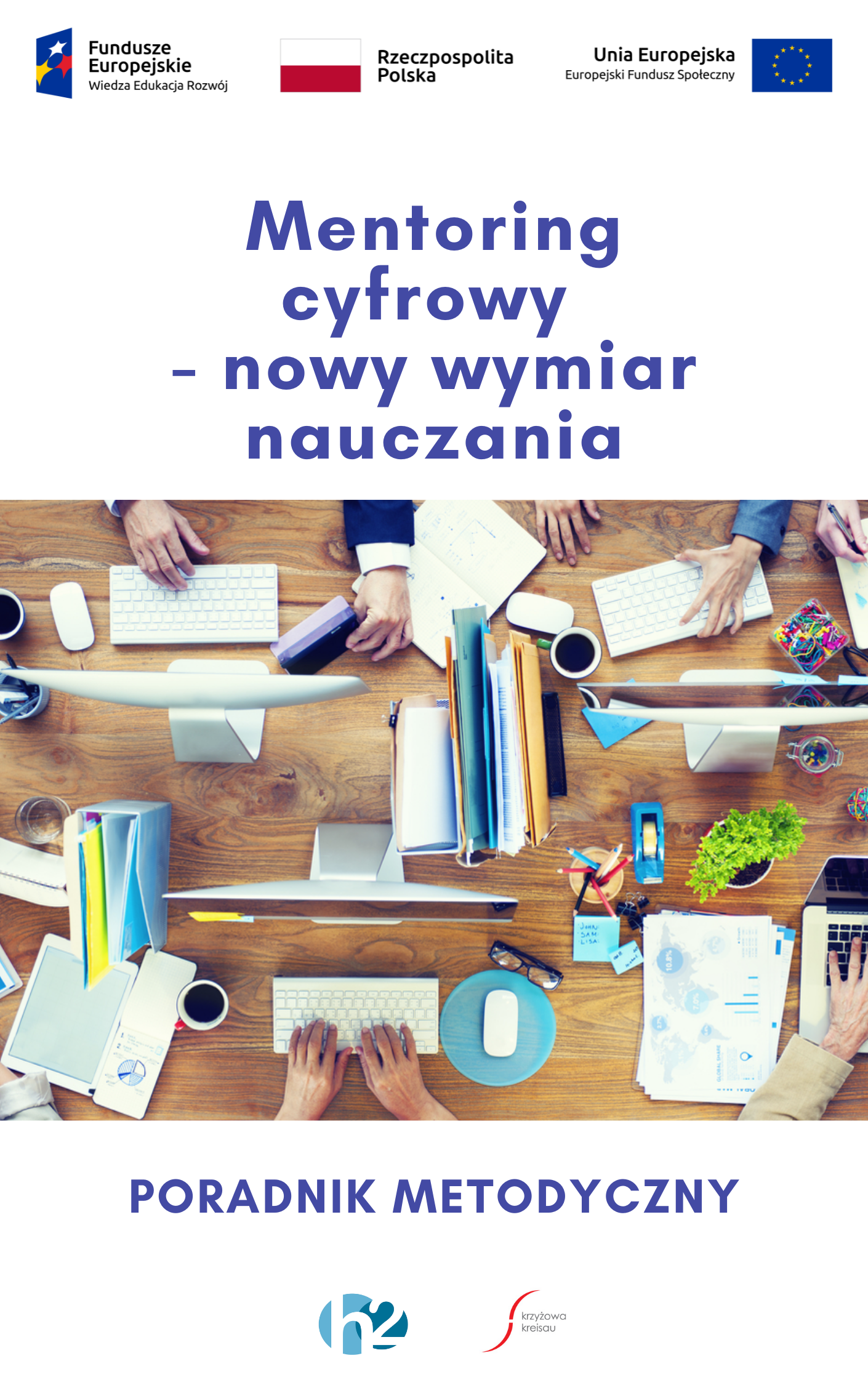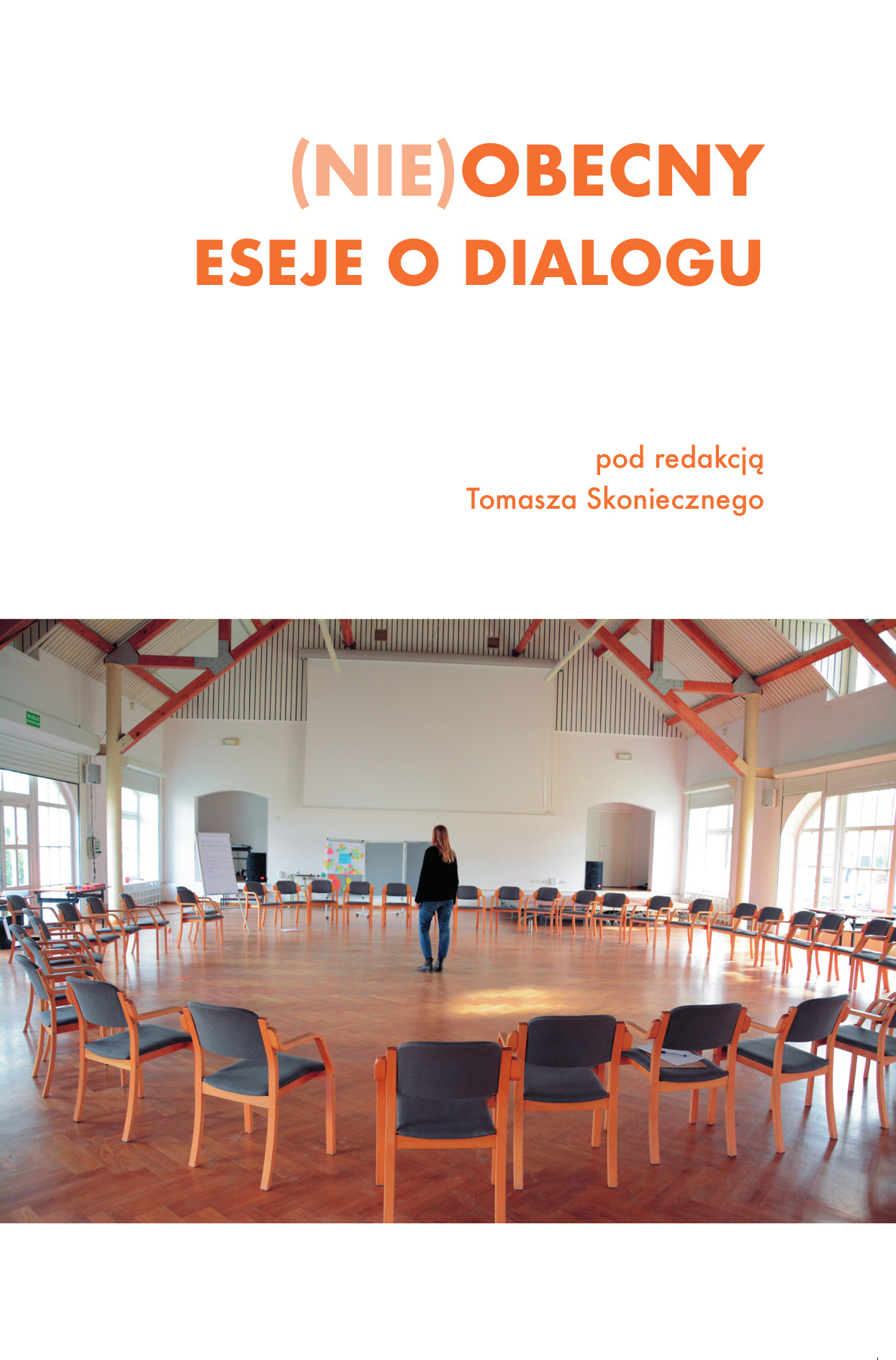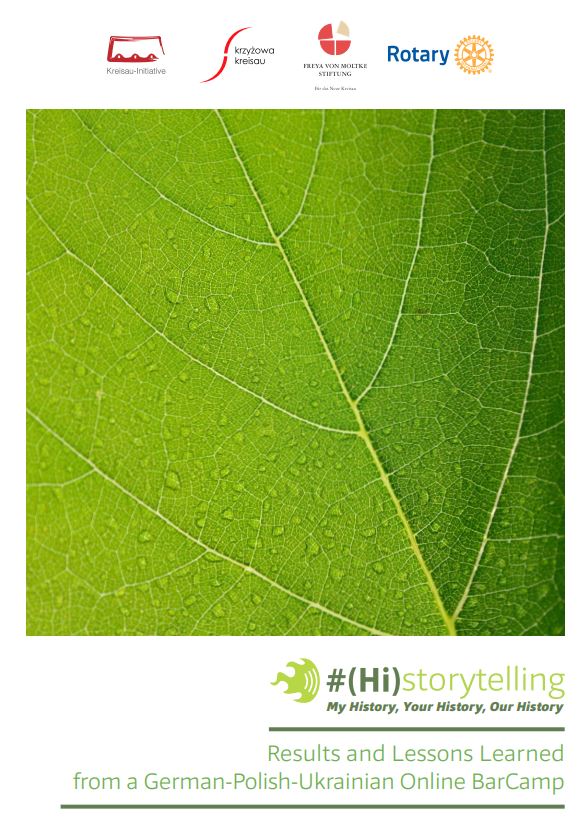 We present a publication that is the result of the project "Courage to change, courage to act", which lasted in 2018-2021, carried out jointly by the Krzyżowa Foundation for Mutual Understanding in Europe, Kreisau Initiative e. V., Fundacja EkoRozwoju, Instytut Globalnej Odpowiedzialności, Konzeptwerk Neue Oekonomie, Fairbindung and Kolektyw Trenerski Lepiej.
We present a publication that is the result of the project "Courage to change, courage to act", which lasted in 2018-2021, carried out jointly by the Krzyżowa Foundation for Mutual Understanding in Europe, Kreisau Initiative e. V., Fundacja EkoRozwoju, Instytut Globalnej Odpowiedzialności, Konzeptwerk Neue Oekonomie, Fairbindung and Kolektyw Trenerski Lepiej.
As part of the project, nine trainings for educators from Poland and Germany took place, as well as three symposia in the field of education and sustainable development (including one in Krzyżowa: Let's go! How to create environmentally sustainable education places?).
The publication is in the form of a textbook on education for sustainable development, transformative learning and education for post-growth. You can find there mainly exercises for working with groups, both teenagers and adults. They have been selected in such a way that with their help it is possible to work on three different levels, necessary in education for the socio-ecological transformation: acquiring awareness of the problems, deepening the knowledge about the realities and getting to know different perspectives, and taking action. The issues raised in the handbook concern, inter alia, critique of growth, social justice; and strategies for sustainable development. The publication proposes 22 exercises that are diverse, both in terms of the issues they touch upon and the methods of work. They were developed in a Polish-German team of educators and non-formal educators, taking into account the Polish context in education for the social and ecological transformation.
Read more: ||PUBLICATION|| "Wszystkie ręce na pokład!" A Handbook to Education for Socio-Ecological...

DIGITAL MENTORING - A NEW DIMENSION FOR LEARNING. METHODIC GUIDE on Digital Mentoring
TEAM OF EXPERTS: Michael Hallissy, John Hurley, Maria Fojk, Karolina Wójcik, Iwona Machoń - Pluszczewska, Jolanta Kolinko; Edited by Iwona Machoń-Pluszczewska, Krzyżowa 2021
The publication is the result of the grant project "Digital mentoring - a new dimension of teaching" co-financed by the European Union from the European Social Fund. The authors of the guide are: Michael Hallissy, John Hurley, Maria Fojk, Karolina Wójcik, Iwona Machoń - Pluszczewska and Jolanta Kolinko - an Irish-Polish team of experts from H2 Learning Ltd. and the Krzyżowa Foundation for Mutual Understanding in Europe.
Read more: ||PUBLICATION|| DIGITAL MENTORING - A NEW DIMENSION FOR TEACHING. Methodology guide

(Un)present. Essays on Dialogue, edited by Tomasz Skonieczny, Krzyżowa Foundation for Mutual Understanding in Europe, Wrocław 2020
"(Un)present. Essays on Dialogue" is the latest publication issued by the Krzyżowa Foundation and Konrad Adenauer Foundation in Poland. It is not only an attempt to show the condition of dialogue in the contemporary world and to present experiences and difficulties which can be encountered professionally while working on behalf of civic education, but also - we hope - an inspiration to oppose the culture of polarisation and dispute.
Excerpt from the Introduction:
(...) The events taking place in Poland, Germany, as well as in many other European countries, which we have witnessed in recent years, clearly indicate that we are less and less inclined to display a similar attitude. Much more often we can observe an increase in extreme tendencies, which are also manifested by a high aversion to respecting those who present different views. One of the signs of the increasing polarisation of societies is the intensification of activities aimed at building a strong group identity - based on the relation "us" - "them". This leads to attempts not only to build opposition with people from outside the community, but even to the exclusion of those who do not fit into the imagined model.
Read more: PUBLICATION || (Un)present. Essays about Dialogue, ed. by Tomasz Skonieczny
 Today at the Foundation, not only online work prevails over working in lively contact with people participating in educational projects, but also our publications appear more and more often in digital form, not in the form of a book that smells of print. The currently presented publication is the result of a two-day online BarCamp organized in June 2020 together with the Kreisau Initiative e.V. and Freya von Moltke Stiftung, to participate in which we invited youth work specialists from Germany, Poland and Ukraine.
Today at the Foundation, not only online work prevails over working in lively contact with people participating in educational projects, but also our publications appear more and more often in digital form, not in the form of a book that smells of print. The currently presented publication is the result of a two-day online BarCamp organized in June 2020 together with the Kreisau Initiative e.V. and Freya von Moltke Stiftung, to participate in which we invited youth work specialists from Germany, Poland and Ukraine.
The subject of BarCamp was reflection on the current situation of historical and civic education in our three countries. Innovative methods, which we are currently developing in order to maintain the existence of non-formal education, especially historical and civic education, played an important role here. The publication summarizes our experiences related to the implementation of BarCamp online. The entire chapter is devoted to ideas on how to transfer popular integration games and energizers to virtual meeting spaces. The publication is now available in English on our website and can be downloaded for free.
Read more: PUBLICATION || #(Hi)storytelling. My History, Your History, Our History







